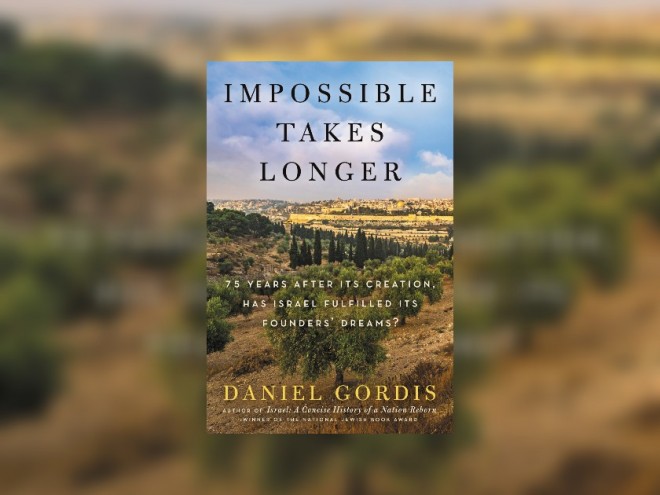Daniel Gordis’s new history of Israel should become a standard for years to come, perhaps even a classic. At 576 pages, Israel: A Concise History of a Nation Reborn can indeed be considered concise, as so much more could be and has been written about each era and associated issues addressed in the book. Clear, forceful, frank, and often inspiring, this mighty tome of both academic and personal writing explores the ups, downs, and turning points in a history that begins with Theodore Herzl’s vision and ends with tomorrow’s challenges.
Gordis is masterful at stepping into the personalities of the key thinkers and doers of the modern Jewish state. His portraits are alive, and his judgments are shrewd. He understands and conveys with authority the ways in which, for the most part, the right leaders arise to encounter the troubles of specific eras, such as Menachem Begin’s fruitful ascendency following a period of relative disgrace and invisibility. Quick to point out the flaws in his parade of Israel’s pre-state and later leaders, Gordis exposes how the times make the leader (and vice versa) with sensitivity and nuance.
As vigorously as he draws the pre-state decades of Zionist immigration, Gordis’s depictions of independent, modern Israel’s remarkable and even miraculous ability to absorb millions of émigrés are truly uplifting; the statistics are staggering, especially those examined from periods when Israel’s economy was relatively weak. Each of Israel’s major and minor wars receives its due in terms of its relative complexity and consequence. Perhaps the most intriguing chapter is “Six Days of War Change a Country Forever” about the 1967 war: the euphoria which followed Israel’s multilayered victory is palpable straight off the page.
The very next chapter, “The Burden of Occupation,” redirects readers’ understanding of the Israeli mood and sense of reality. Gordis quotes Amos Oz: “Even unavoidable occupation is corrupting occupation.” Such has been the unintended consequence or collateral damage for Israel, along with dangerous hostility from many quarters. Gordis’s decision not to employ a term less-charged than “occupation” is ultimately to his credit, though it will be a point of contention for many readers and reviewers.
One might not expect Gordis to quote poetry in a history book, but he judiciously employs poetic passages to help shape the history of the Israeli heart and soul — including the words of Naomi Shemer, whose song lyrics trace the shifting emotions and perceptions of the people of Israel. In later chapters, Gordis observes changes in Israeli sensibilities. Some changes are the result of generational contrast. After all, how many of today’s Israelis have memories of the Holocaust, or even of the great challenges of 1947 and 1948? Who really expected a Hebrew-speaking nation to emerge and produce a major body of literature in an old/new language? Who foresaw the ride from socialism to capitalism, from farm laborers to technocrats, from Zionist secularism to a growing religiosity?
Gordis guides readers through all of this and much more, with a blend of energy and grace, brain and heart in mutual embrace.
Philip K. Jason is professor emeritus of English at the United States Naval Academy. A former editor of Poet Lore, he is the author or editor of twenty books, including Acts and Shadows: The Vietnam War in American Literary Culture and Don’t Wave Goodbye: The Children’s Flight from Nazi Persecution to American Freedom.




